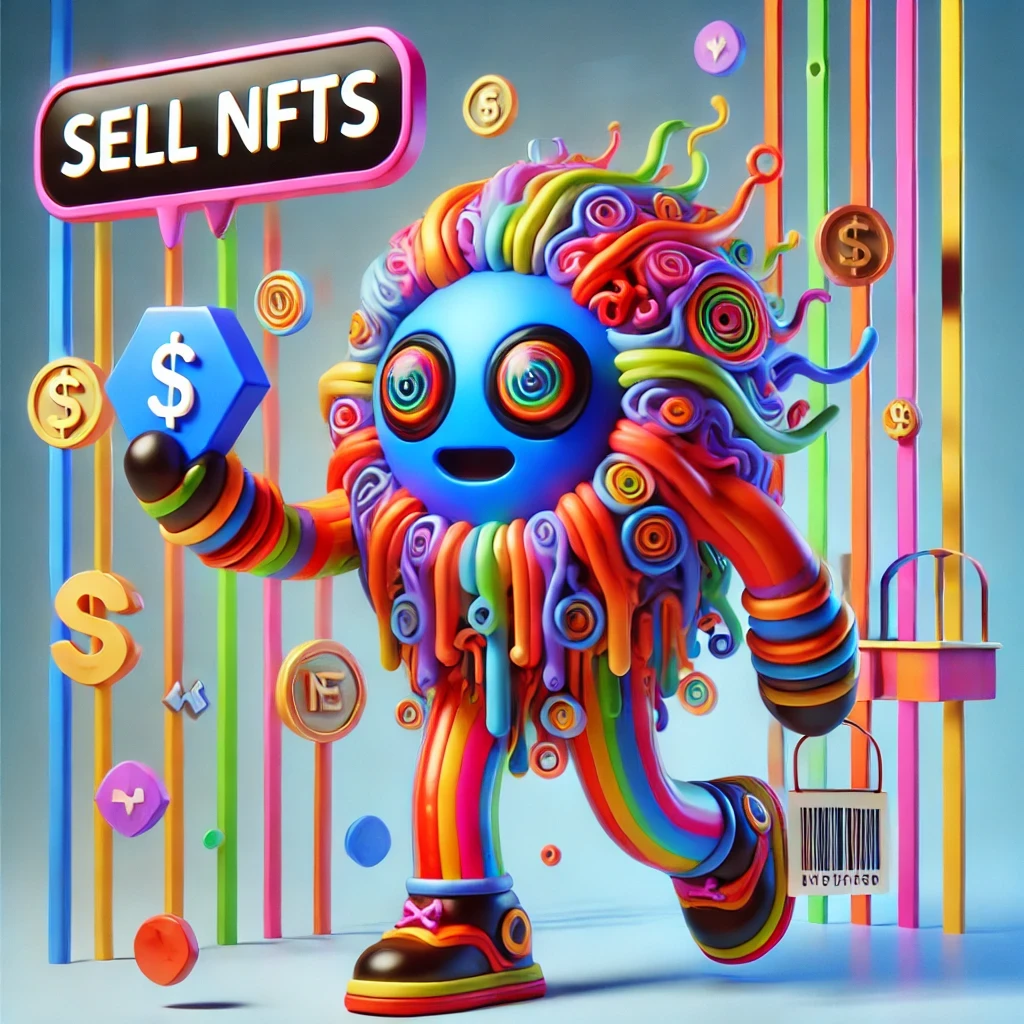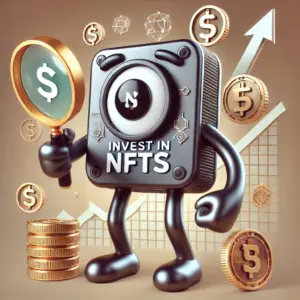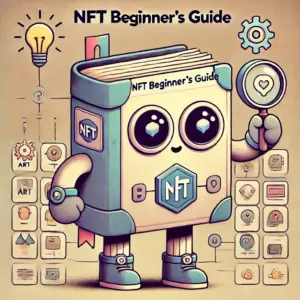The world of Non-Fungible Tokens (NFTs) has exploded in recent years, captivating artists, collectors, and investors alike. These digital assets, representing ownership of unique digital or physical items, have opened up exciting opportunities for creators and collectors to engage in a new form of ownership and commerce. However, navigating the intricacies of the NFT marketplace can feel daunting for newcomers. This comprehensive guide aims to demystify the process of selling NFTs, from preparation to listing and beyond.
Table of Contents:
Understanding the NFT Landscape
Before diving into the mechanics of selling NFTs, it’s crucial to grasp the fundamental concepts behind this burgeoning technology. NFTs are essentially digital certificates of authenticity, built on blockchain technology, that prove ownership of unique digital assets. These assets can be anything from digital artwork and collectibles to music, videos, and even virtual real estate.
The blockchain, a decentralized and transparent ledger, ensures immutability and traceability of NFT transactions. This means that ownership history and authenticity are permanently recorded, making NFTs a secure and verifiable form of digital property.
Choosing the Right NFT Marketplace
Deciding where to sell your NFTs is the first critical step. Numerous marketplaces cater to diverse audiences and cater to various niche interests. Some popular NFT marketplaces include:
-
OpenSea
OpenSea stands as the leading NFT marketplace, renowned for its vast selection of digital assets and ease of use. Its user-friendly interface and extensive collection make it an excellent starting point for both seasoned NFT enthusiasts and newcomers.
-
Rarible
Rarible is another prominent marketplace distinguished by its community-driven approach. Creators can actively participate in governance decisions, influencing the platform’s direction. Its creator-centric approach allows for greater control and influence.
-
Foundation
Foundation focuses on high-quality art and is known for its rigorous curation process. Artists are carefully selected, leading to a curated collection of exceptional digital art. This platform is ideal for creators seeking exposure within a discerning community.
-
Nifty Gateway
Nifty Gateway stands out as a platform for curated digital art and collectibles. It offers exclusive partnerships with renowned artists and hosts auctions, creating a unique experience for both buyers and sellers.
-
SuperRare
SuperRare specializes in rare digital art and collectibles. It prioritizes the artistic merit of NFTs, featuring limited-edition pieces from acclaimed artists.
When selecting a marketplace, consider factors like fees, user base, target audience, and platform features. Research each platform, compare offerings, and choose one that aligns with your specific NFT project and goals.
Preparing Your NFTs for Sale
Before listing your NFTs, ensure they are meticulously prepared for the marketplace. This involves several critical steps:
Creating High-Quality Artwork
For digital artwork, prioritize creating captivating and high-resolution images or videos. The visual appeal of your NFT is paramount in attracting potential buyers. Invest time and effort into honing your artistic skills or collaborating with talented creators to ensure your NFTs stand out.
Developing a Unique Collection Concept
For a series of NFTs, crafting a compelling narrative or theme behind your collection can enhance its value and appeal. Consider your target audience, their interests, and the overall message you want to convey. A well-defined concept strengthens your brand identity and creates a cohesive story around your NFTs.
Crafting a Compelling Description
Every NFT listing should include a comprehensive description that provides a clear understanding of the asset’s features, benefits, and value proposition. Describe the artwork, its inspiration, and the concept behind it, showcasing its uniqueness and significance. Include relevant keywords to improve discoverability on the marketplace.
Setting the Right Price
Determining the right price for your NFTs can be challenging. Consider factors like rarity, demand, artist reputation, and similar NFT sales on the same marketplace. Research comparable NFTs and explore different pricing strategies, such as fixed pricing, or dutch auctions, where prices decrease over time. Be aware of the current market trends and adjust your pricing accordingly.
Choosing the Correct Format
The format of your NFT is crucial for compatibility and seamless integration with various platforms. The most common formats include:
-
JPEG
JPEG is a widely supported image format ideal for static digital artwork.
-
PNG
PNG is another common format supporting transparency and high-quality images. It’s often used for digital artwork with transparent backgrounds.
-
GIF
GIF is a popular format for animated images, adding dynamism and interactivity to your NFTs.
-
MP4/WebM
MP4 and WebM are widely supported formats for video content, enabling you to create engaging and immersive NFTs.
Select the format that aligns best with the type of art or asset you’re selling.
Listing Your NFTs on a Marketplace
Once your NFTs are prepped, it’s time to list them on your chosen marketplace. Follow these steps for a smooth and successful listing process:
Creating an Account
Start by creating an account on the chosen marketplace. Provide the required information, including your email address, username, password, and preferred cryptocurrency wallet.
Most marketplaces require linking a cryptocurrency wallet to your account. A cryptocurrency wallet allows you to manage your digital assets, including NFTs, and conduct transactions on the blockchain.
Uploading Your NFTs
Navigate to the “Create” or “Upload” section on the marketplace, select the chosen format, and upload your NFT files. Provide a descriptive title, elaborate on the artwork, and set the starting price or auction parameters.
Setting the Royalty Percentage
Many marketplaces allow artists to set a royalty fee for future sales of their NFTs. This ensures you receive a percentage of any secondary market transactions, encouraging ongoing revenue generation from your artwork.
Choosing Listing Options
Most marketplaces offer various listing options:
-
Fixed Price
This option allows you to set a specific price for your NFT. Buyers purchase it at that price.
-
Auction
This option enables bidding, where buyers place offers for your NFT. The highest bidder at the end of the auction wins the NFT.
-
Dutch Auction
This option starts with a high price that gradually decreases until a buyer accepts the offer.
-
Blind Auction
This option allows buyers to place bids without seeing the artwork until the auction ends. The buyer can then choose to buy the revealed NFT at the bid price or forfeit their bid.
Choose the listing option that best fits your pricing strategy and market objectives.
Promoting Your NFTs
Once your NFTs are listed, it’s crucial to promote them effectively to reach a wider audience. Consider the following strategies:
Social Media Marketing
Utilize platforms like Twitter, Instagram, Discord, and Facebook to showcase your NFTs, engage with potential collectors, and build a following. Share captivating visuals, intriguing stories, and interact with your community. Consider joining relevant NFT communities and engaging in conversations to build connections with peers.
Cross-Promotion
Collaborate with other artists, influencers, or creators in the NFT space to cross-promote your work. This expands your reach and introduces your NFTs to new audiences.
Content Creation
Create high-quality content that highlights your NFTs, their concepts, and their unique value proposition. This could include blog posts, videos, or even interactive experiences showcasing your artwork.
Community Building
Develop a strong community around your NFTs. Engage with your followers, respond to inquiries, and foster a sense of belonging. Consider launching exclusive giveaways, contests, or events to further strengthen loyalty and engagement.
Navigating the Secondary Market
After your initial NFT sale, your artwork may be traded on the secondary market, where collectors can buy and sell NFTs from other owners. If you set a royalty percentage, you will earn a commission on each secondary sale, providing residual income over time. Monitor the secondary market, engage with collectors, and adapt your strategies based on evolving market trends.
Safely Managing Your NFTs
Ensuring the security of your NFTs during the selling process and beyond is essential. Pay heed to these safety and security measures:
Use a Secure Wallet
Store your NFTs in a secure cryptocurrency wallet. Hardware wallets are considered the most secure option, offering offline storage, while software wallets provide online access. Be cautious of phishing attempts and never share your wallet’s private keys or seed phrase with anyone.
Enable Two-Factor Authentication
Activate two-factor authentication (2FA) for your marketplace account and cryptocurrency wallet. This adds an extra layer of security by requiring a second factor, like a code from your phone, in addition to your password. 2FA greatly minimizes unauthorized access.
Be Aware of Scams
Stay vigilant against scams prevalent in the NFT space. Be cautious of phishing attempts, fraudulent listings, or suspicious offers. Always double-check the legitimacy of any transaction or contact before proceeding.
Tax Considerations
NFT sales are subject to tax implications. Consult with a qualified financial advisor or tax professional to understand the specific tax rules and regulations in your jurisdiction. Keep accurate records of your NFT transactions, including purchase and sale dates, prices, and any associated fees.
Conclusion
Selling NFTs presents a dynamic and evolving landscape with substantial opportunities for creators and collectors alike. By understanding the fundamentals of NFTs, choosing the right marketplace, meticulously preparing your work, and implementing effective promotion strategies, you can increase your chances of success. Remember to prioritize the security of your NFTs, stay informed about tax implications, and adapt to the ever-changing world of NFT art and commerce.
FAQs
-
What are NFTs?
NFTs, or Non-Fungible Tokens, are unique digital assets built on blockchain technology that represent ownership of specific digital or physical items. They are verifiable, secure, and generally immutable, creating a new form of digital property.
-
How do I create NFTs?
Creating NFTs typically involves using a platform like OpenSea or Rarible. You’ll need to choose a compatible file format (like JPEG or PNG), upload your art or asset, set a description and price, and pay gas fees to make your NFT available on the blockchain.
-
What are some popular NFT marketplaces?
Popular NFT marketplaces include OpenSea, Rarible, Foundation, Nifty Gateway, and SuperRare. Each platform has its strengths and caters to different audiences and niches. Research different marketplaces to find one that aligns with your NFT project.
-
How do I price my NFTs?
NFT pricing is a complex process. Consider rarity, demand, artist reputation, and comparable NFT sales on the same marketplace. Research similar NFTs, explore different pricing strategies, and be aware of current market trends.
-
How can I promote my NFTs?
Utilize social media marketing, cross-promotion with other artists, content creation, and community building to promote your NFTs. Engage with potential collectors, share captivating visuals and stories, and leverage different platforms to reach a wider audience.
-
How do I ensure the security of my NFTs?
Use a secure cryptocurrency wallet, enable two-factor authentication, and stay vigilant against scams. Be cautious of phishing attempts, fraudulent listings, and suspicious offers. Always double-check the legitimacy of any transaction or contact before proceeding.
-
Are there tax implications for selling NFTs?
Yes, NFT sales are typically subject to tax implications. Consult with a qualified financial advisor or tax professional to understand the specific rules and regulations in your jurisdiction and properly manage your tax obligations.






